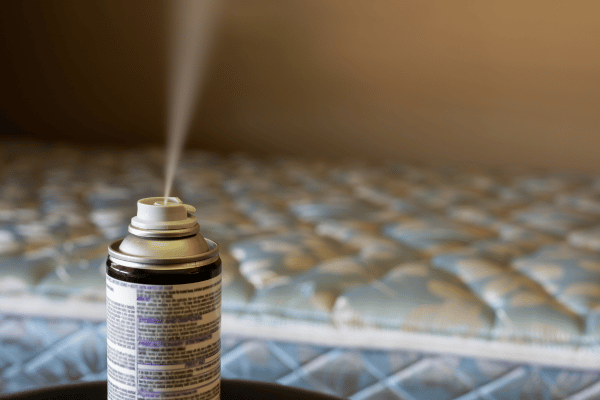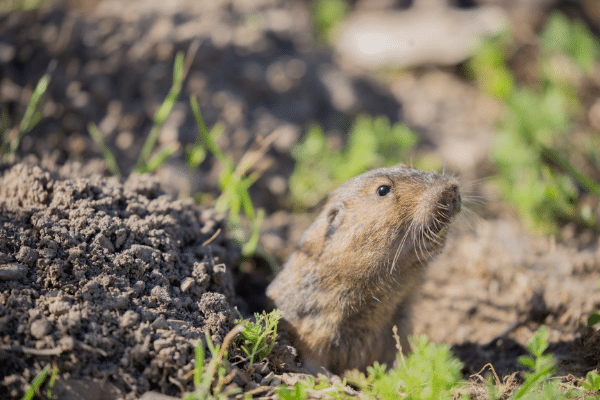How To Keep Ants Away
This post may contain affiliate links so I earn a commission.
Every homeowner should know how to keep ants away if they want to protect their home.
Not only will ants ruin any unsealed food, but certain ants can chew through important structural elements of your home, leading to expensive repairs.
If you have an infestation, don’t fret. As long as you catch the infestation early enough, you can easily drive these tiny pests away and save your food and your home.
Types Of Ants
Identifying which ant is breaking into your home is the first thing you should do when learning how to keep ants away.
Before you start spraying chemicals at any creepy crawly, it’s important to know which ant has entered your house, so you can deal with the situation effectively.
A few different kinds of ants can infest your home.
It’s important to know the differences between them so that you understand their behaviors, risks they pose to your home, and how to properly get rid of them.
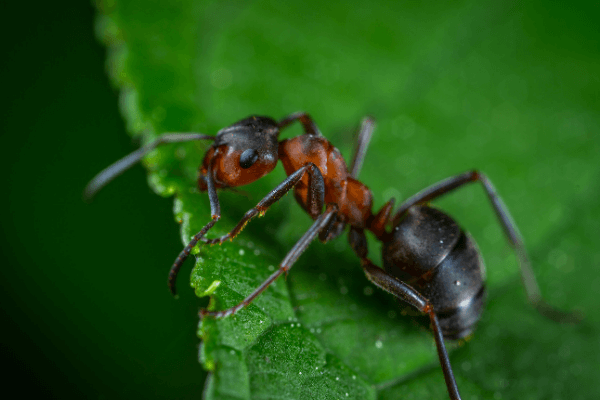
Some ants live outside and only come inside to forage in your kitchen, then leave your house to return to their nests.
However, some ants come into your home to create nests and stay on a long-term basis.
These ants include Argentine, crazy, odorous house, pavement, pharaoh, thief, and carpenter ants.
Ants that nest in your home will also forage for food in your house, but they are more difficult to eradicate because they colonize and reproduce within your walls.
Carpenter ants are some of the worst ants to infest your home, because they cause property damage, as opposed to these other species.
If you don’t find them early enough, they will burrow into the wood in your walls to make their nests. Left alone in your walls long enough, they can destroy the bones of your house, resulting in wildly expensive repairs.
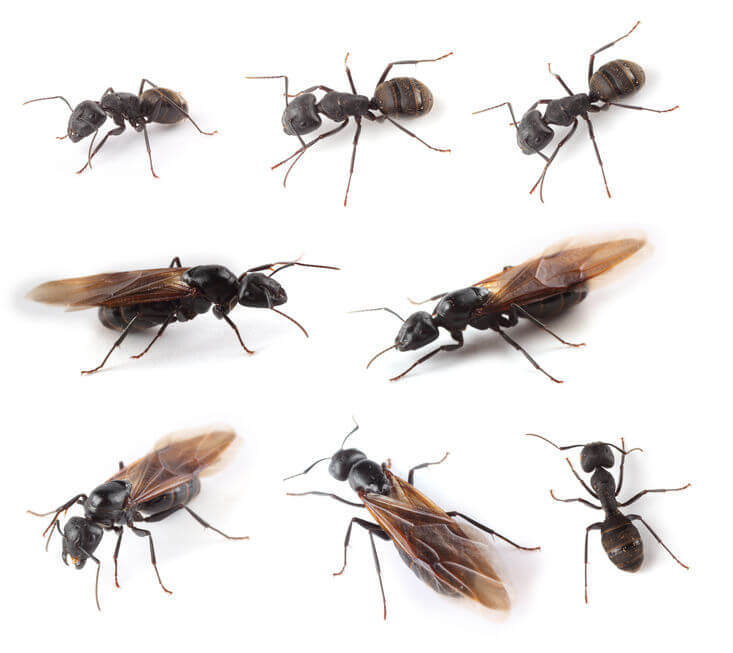
Flying ants are also a concern for homeowners learning how to keep ants away.
They can get into your home just like any other ant, but the fact that they can fly can make them more elusive and intimidating than other ants.
It can be difficult to differentiate between flying ants and termites, which are much worse pests.
A few key differences can help you identify which one has found its way inside.
Flying ants have small waists and their antennae are jointed, like an elbow.
Termites, on the other hand, have a wider waist and straight antennae. You can also differentiate between them by looking at their wings.
Both have two pairs of wings, but termites’ wings are long, and the pairs are equal in length. Flying ants’ front wings are longer than their back wings. If you find termites, your problems may be bigger.
Outdoor Ant Maintenance
If you follow the trail of ants and find that they’re leaving the house to return to their nest, there are a few things you can do to keep them outside where they belong.
Make sure you fill any cracks on the outside of your home with caulk to stop the ants from coming back inside.
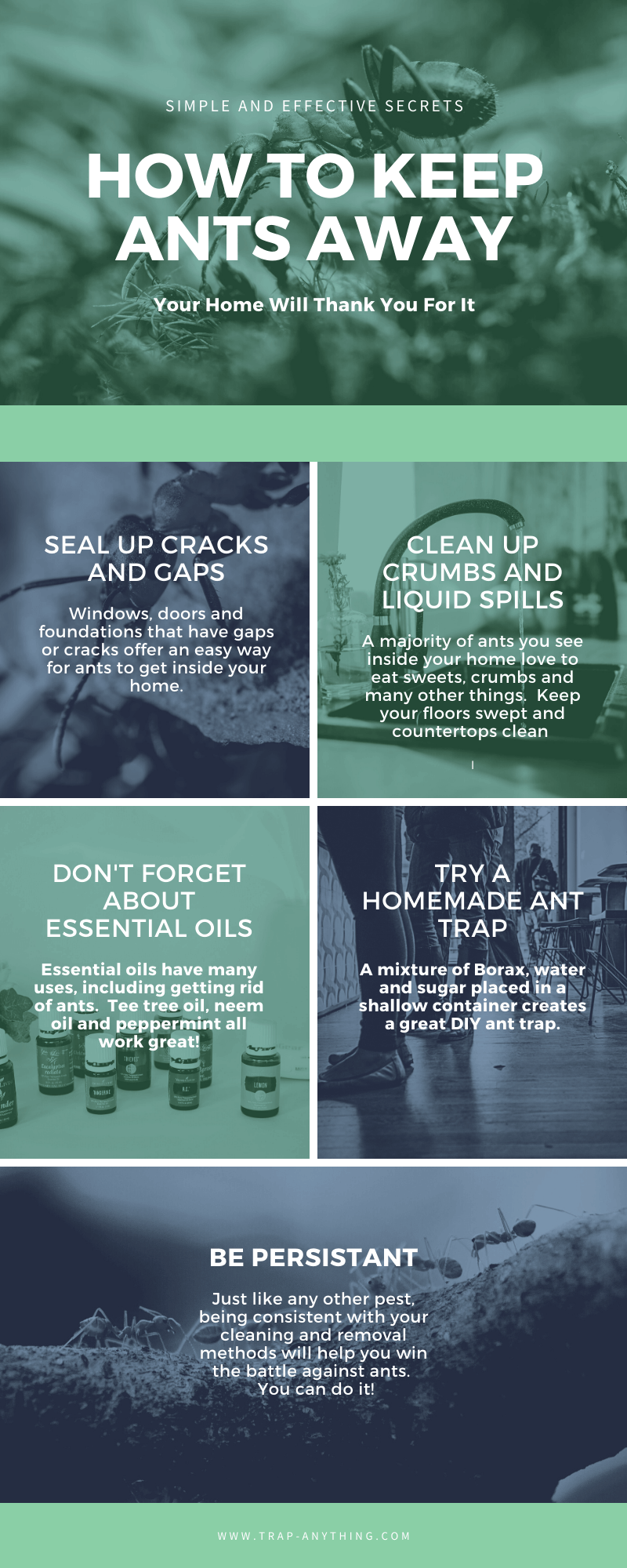
Have you ever noticed that ants always walk in such orderly lines?
That’s because they leave a trail of pheromones as soon as they get inside. The colony then has a direct line inside.
To keep ants away, clean the floors where the ants enter, especially around the corners. That way, they won’t be able to find their way back in.
If the anthill is in your yard, you may want to treat it with insecticide or boiling water. Pouring boiling water over an anthill will quickly kill the ants inside.
You should also remove any dead plant matter from your yard and trim any trees or bushes close to the house to prevent future infestations.
Natural Remedies For Your Kitchen
Many people don’t understand how to keep ants away without spending a ton of money.
In reality, you probably already have plenty of things in your cabinets or fridge that can drive them out.
After you make your morning coffee, take the used coffee grounds to repel the tiny invaders by placing the grounds where ants might be attracted.
Pepper is also effective at preventing ants since they are irritated by the smell.
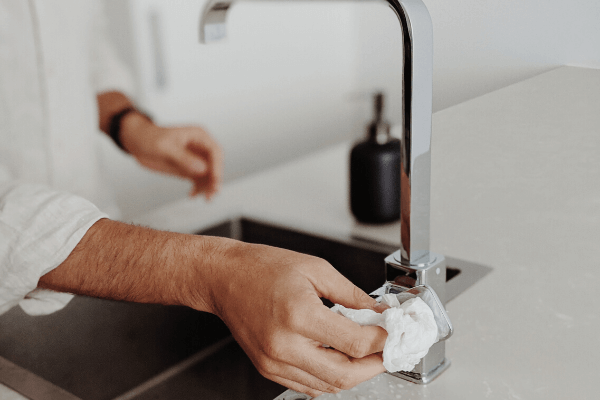
If the ants have already gotten in, wipe the ants up with a paper towel soaked in white vinegar, which will kill them and keep away any others.
For a bad infestation, you can pour cornstarch over a large pile of ants and add water, quickly smothering them.
How To Keep Ants Away With Essential Oils
There are a thousand ways to use essential oils around the house. They also come in handy when you’re trying to keep ants away.
Some of the most effective essential oils for ant prevention are tea tree oil, lemon eucalyptus oil, cinnamon leaf oil, neem oil, and peppermint oil.
You can soak a cotton ball in the oil or dilute it with water to create a spray.
Pesticide And Other Chemicals
You may be overwhelmed with your infestation and exhausted from trying all the home remedies.
If that’s the case, you’re probably ready to learn how to keep ants away by using pesticides or other chemicals that will repel them.
You can purchase several chemicals that will kill the pests in your home and keep ants from coming back.
Oil of lemon eucalyptus (OLE), boric acid, and sodium tetraborate will immediately kill the pests.
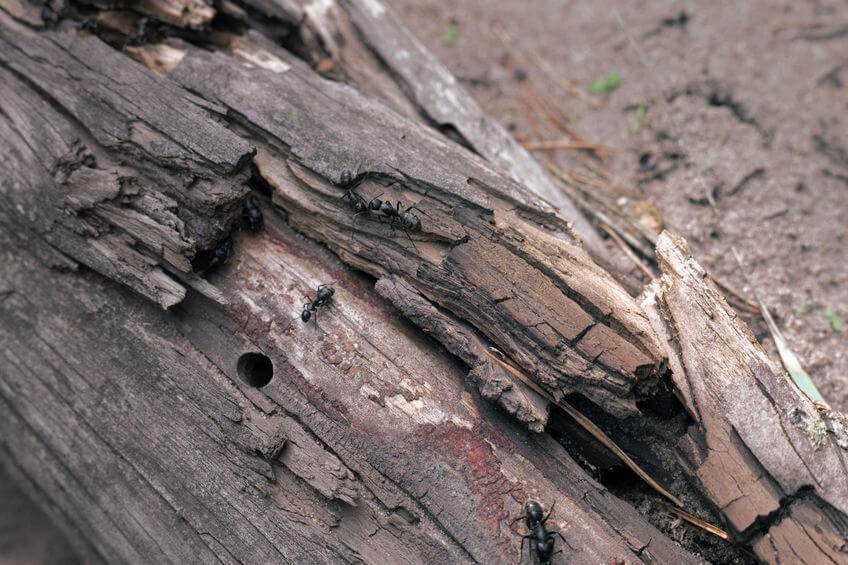
Many nontoxic chemicals can keep ants away from your home.
Diatomaceous earth, glass cleaner, liquid detergent, and hand soap are all effective at removing the pheromones that ants follow into your house without killing the ants or contaminating your food with dangerous chemicals.
The best thing you can do to keep ants away from your home is to cut off their food source.
If there isn’t anything that they can access inside, they won’t have a reason to come back in.
Take out any lingering trash, store all open containers, wipe down surfaces regularly, and keep the floor clean.
In addition to any of the above methods of ant removal, keeping your home crumb-free will make ants much less interested in your house.
Sometimes, even the best DIY defenses against pests don’t work out.
If you need assistance or more information on how to keep ants away, turn to professionals who will be able to trap and eradicate even the most stubborn invader.

